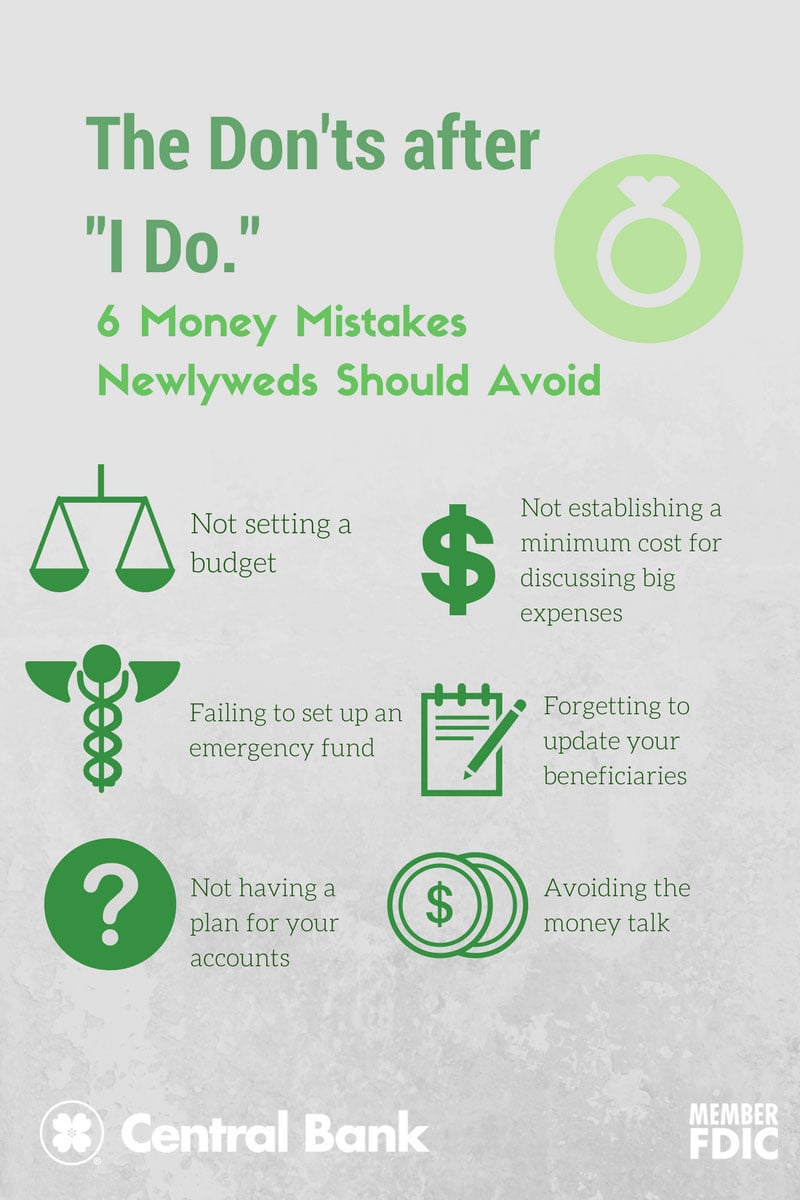After being occupied with planning the milestone event itself, the details of life after marriage seem to rest on the back burners. But the financial future that you share with your significant other is just as important, if not more, than when you say, “I do.” Here are some financial mistakes to avoid when starting off your life as Newlyweds.
1. Avoiding the money talk.
Discussing your finances can be a bit uncomfortable for many couples, but those who tackle it head on will be better off and stronger for it. Understand your partner's financial goals and spending habits. While you may have different answers, this conversation can help you develop an approach to money management that works for both of you.
2. Not setting a budget.
A mistake many couples make is not establishing a budget early on. After assessing your finances as a pair, determine how you'll spend your money each month. Are there certain expenses that you should be cutting back on and others you should be saving up for? Coming to an agreement on these things and setting a budget will be beneficial for the health of your bank accounts and your relationship.
3. Not having a plan for your accounts.
There is no 'right' way to manage your accounts. Couples can choose to have exclusively joint accounts, a joint account as well as separate accounts for saving or personal spending, or keep things entirely divided. Discuss your preferences together and decide what makes you both the most comfortable.
4. Failing to set up an emergency fund.
Life is full of surprises and unfortunately, some of these surprises can be expensive. Having an emergency fund will help you avoid precarious financial situations should something come up. It's important that you decide together how you'll set aside the money.
5. Not establishing a minimum cost for discussing big expenses.
While not all purchases demand a conversation, more expensive ones that impact the family budget should. Determine what that threshold is as a couple. For any expenses above that cost, you both should be in agreement on whether it's a necessary purchase.
6. Forgetting to update your beneficiaries.
Now that you've officially tied the knot, you should likely identify your spouse as the person who will receive the benefits of your will, life insurance policy and financial accounts like your 401(k), checking, and savings. Don't make the mistake of waiting for an emergency to arise to handle this.
Now that you've read this list of don'ts after saying the “I do's”, it's time for you to start the steps to better secure your financial stability to pair with your matrimonial bliss.

American Bankers Association